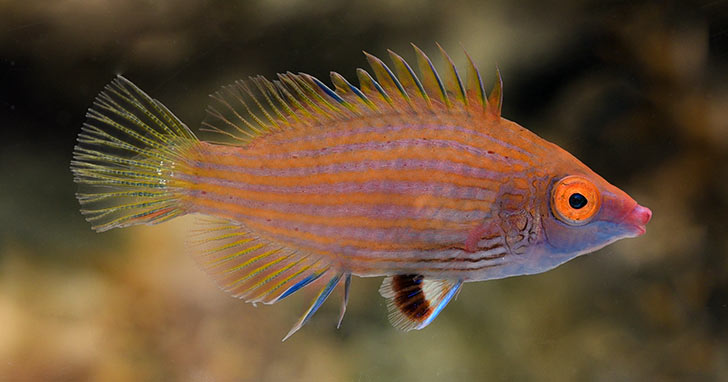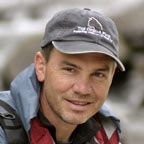The Best Reef Wrasses; Part 4
By Scott W. Michael The Pinkstreaked Wrasse (Pseudocheilinops ataenia) is a lovely little fish which only gets around 2.5 inches long. They are also sexually dichromatic, with the males sporting more pronounced yellow lines down the body and bluish gray markings on the gill cover. This wrasse is a small, colorful fish that is a welcome addition to any reef aquarium (even the nano-reef). While it is very shy initially, it gradually becomes quite bold and will spend a considerable amount of time in the open. It is a good feeder, taking frozen foods and flake foods. It is ignored by most of its tankmates, although I have seen the related Pseudocheilinus wrasses chase it. If the tank is large enough and there are plenty of hiding places, the P. ataenia will simply dive between the branches of soft or hard corals. I have never seen it behave aggressively toward any other fishes, including two smaller possum wrasses (Wetmorella spp.) I introduced to a tank where the P. ataenia was well established. The possum wrasses are very similar in shape to the Pinkstreaked and one would think they could elicit aggression. On a couple of occasions, one Pinkstreaked Wrasse I kept would inspect a larger fairy wrasse as if it was going to clean it. However, I have yet to see actual cleaning.
 Scott Michael
Scott MichaelScott W. Michael is an internationally-recognized writer, underwater photographer, and marine biology researcher specializing in reef fishes, and was the Banquet Speaker at our 2007 and 2008 Coral Conference and Frag Swap. He is a regular contributor to Aquarium Fish Magazine, Freshwater and Marine Aquarium Magazine, SeaScope, and is the author of Reef Fishes Vol 1, Vol 2, and Vol 3, Vol 4, and Vol 5., A Pocket Expert Guide Marine Fishes, A Pocket Expert Guide to Reef Aquarium Fishes, 101 Best Saltwater Fishes: How to Choose and Keep Hardy, Brilliant, Fascinating Species That Will Thrive in Your Home Aquarium, Reef Sharks & Rays of the World, and Aquarium Sharks & Rays. Having studied marine biology at the University of Nebraska, Scott has served as a scientific consultant for National Geographic Explorer, the Discovery Channel, and French educational television. |
|||||||||||
|
|


